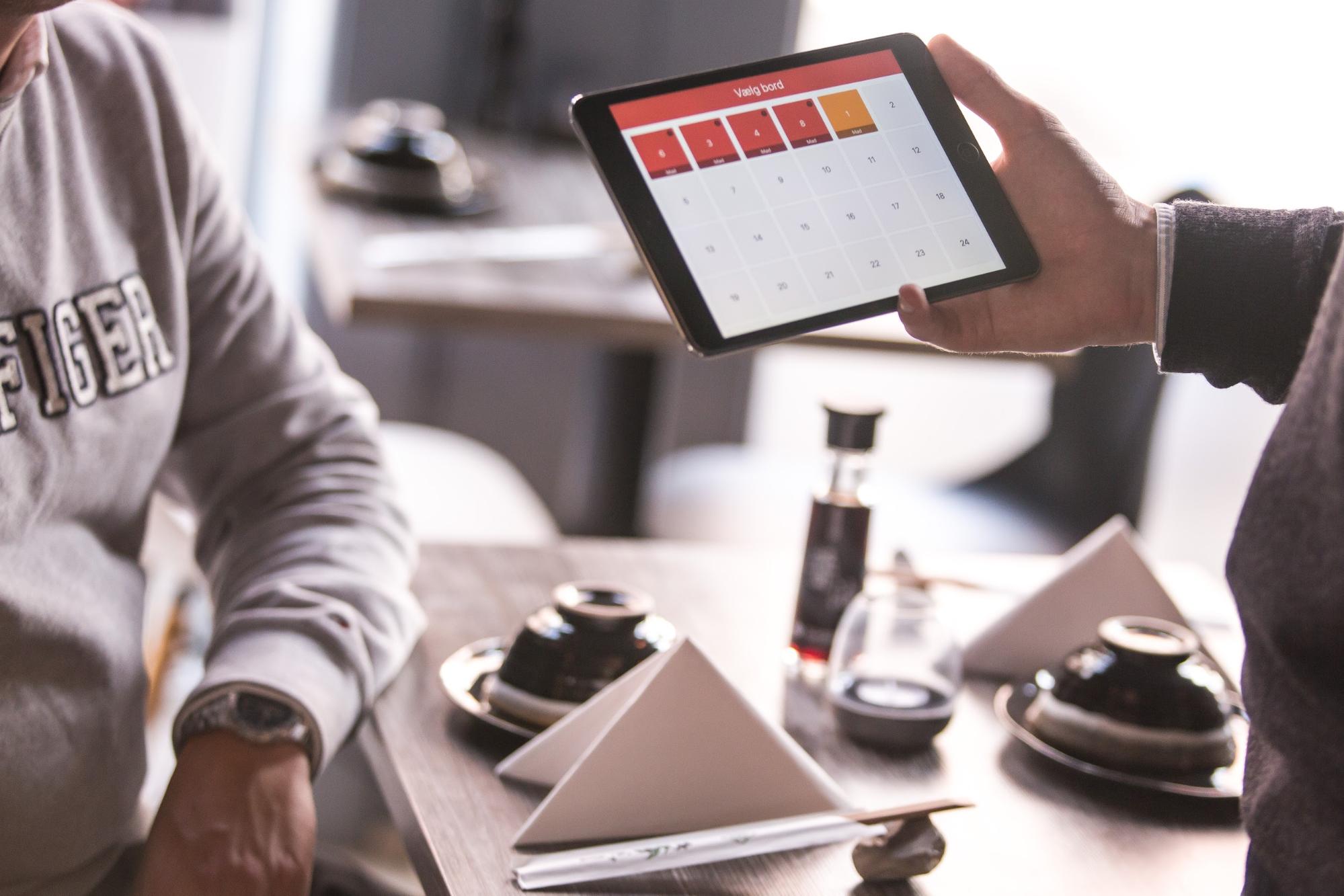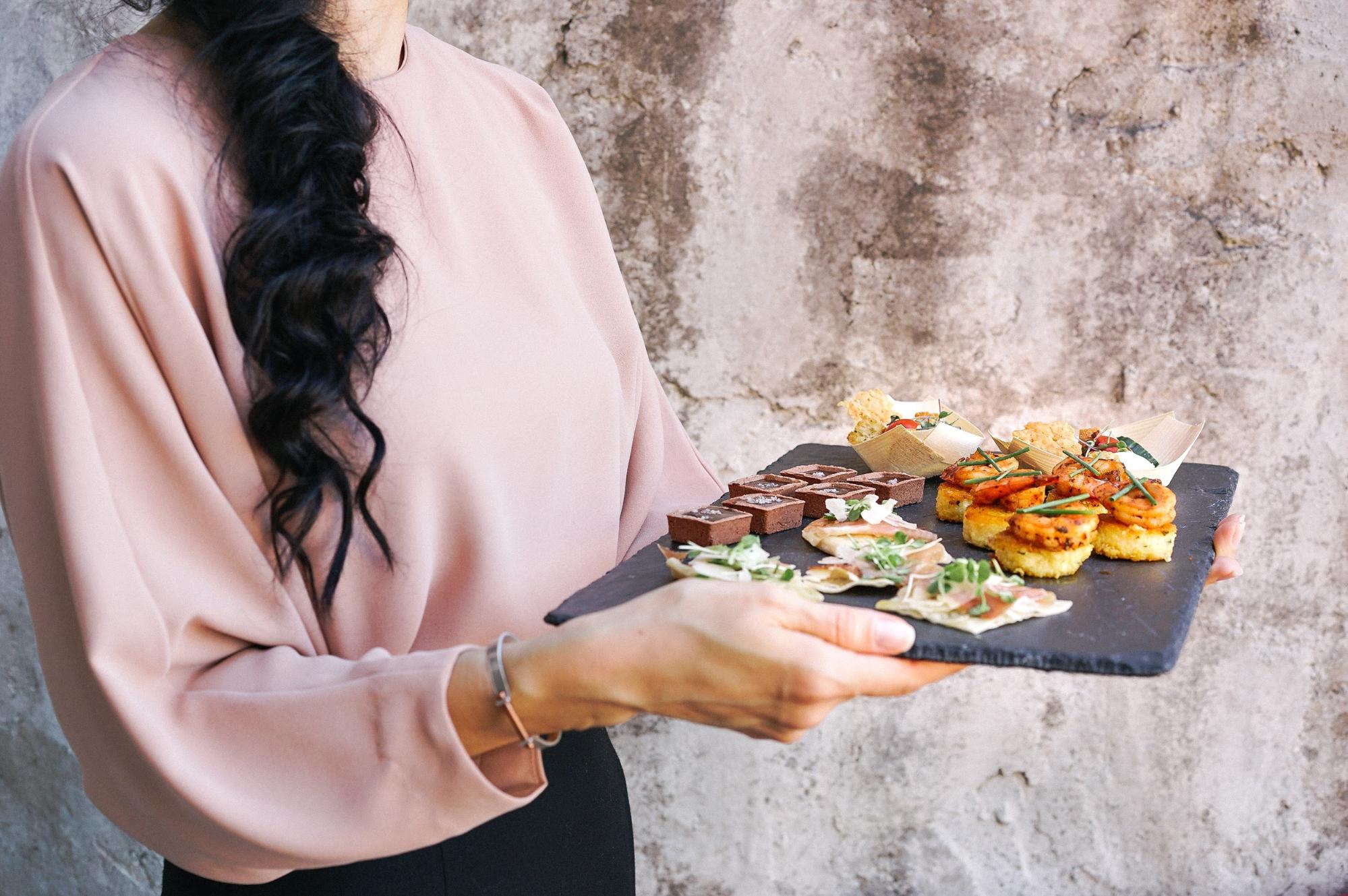Restaurant Floor Plans: 8 Ideas To Inspire Your Next Location
A good restaurant floor plan can mean the difference between a crowded, chaotic ...

Being a great server isn’t about scoring a hefty tip or getting to sleep in on the weekdays. Being a great server is about one simple principle: treat others the way you would like to be treated. It basically translates to making sure your customers are happy and their dining experience goes smoothly. It goes beyond just getting all the orders right and making sure the drink glasses are always full. It includes how you present yourself, how you act, what you say (and how you say it), as well as things like timing and efficiency. Sounds like a lot, doesn’t it? It is! No one said knowing how to be a great server was easy. But like anything that is difficult at first, the rewards are well worth the effort.

The experts at Sling are here to help make your journey towards being a great server just a little bit easier. We can’t be there with you when you have to deal with an irate customer, but we can provide a few tips on how to behave. Along with those tips, we’ll give you some other advice, rules, guidance, and suggestions to help you transform into the great server that we know you can be.
There are a lot—and we mean A LOT—of different ways you can be friendly. For example, warmly greet all customers who enter the dining room. Even if they’re not headed to one of your tables or your section, give them a smile and a “Hi, how ya doin’?” You never know, they may not like the table they were offered and ask to be moved. Or, you may have to take over for a server who got ill or had to leave for an emergency.
Another way you can show a bit of friendliness is by chatting a bit (just a bit, mind you) before taking the drink order. You can start with the usual “Good evening ladies and gentlemen. My name is James. I’ll be your server tonight.” After that, follow up with a quick question like, “Are you visiting us for the first time?” “Have you been here before?” Or, “Are you enjoying the lovely weather?” Choose your question wisely though and make it something they can answer with a yes or a no. Stay away from open-ended questions like, “How ‘bout those Mets?”
At the end of their visit, take the time to write “Thank You” on your guests’ check. It’s a simple act of friendliness that can reap rewards when it’s time to calculate your tip.
Even though you may be dealing with five, seven, or even ten tables, it’s important to keep an eye on all of them. You don’t have to stop and ask how everything’s going at each table (although that’s a good idea at some point), a casual walk-by on your way to deliver drinks to another customer will do. Take note of how far along in the meal they are. Could they use more drinks? Perhaps you notice that the wine bottle is getting low and their wine glasses are empty. Might this be an opportune time to stop and ask if they’d like another bottle of the same?

Even watching your tables from across the room can prove beneficial. A guest might need something and try to get your attention. You may notice that many of the diners at a table have finished the meal and now would be the right time to start clearing and asking about dessert.
Being observant even goes to taking note of your customer’s pace. Do they seem like they’re in a rush? Or are they taking their time, chatting with you, and prolonging the experience? You can take your cues from this behavior and tailor your service to their needs. For those in a hurry, be brief and efficient with your interactions and help them get in and out quickly. For those who want to linger, chat more, suggest another round of drinks, and talk about the desserts. Give the customer what they want (be it speed or leisure), and their pleasure will be reflected in your tip.
We can’t stress enough how important good manners are for a server. Perhaps it’s enough to write it this way: Always. Be. Polite. That should be your basis for good manners, but it actually goes much further than that. Good manners involve looking your customers in the eye when they’re looking at you. Good manners involve smiling and listening when your customers talk. It involves pulling out a guest’s chair when appropriate. And it involves always putting your customers’ interests before your own.
Think of yourself as an English butler from the turn of the 20th century (for reference, that’s Downton Abbey time). You are there to take care of your guests, yes, but you also there to do so in as refined a manner as possible. Please and thank you are mandatory. It doesn’t matter if you work in a greasy spoon right off the interstate, or a five-star establishment where ties and dresses are required. Good manners translate regardless of the food being served or what the guests are wearing. For a more in-depth discussion of manners, check out these helpful books:
Some of the specific advice in these books—like gift giving—won’t apply to your life as a server, but the spirit behind the advice can certainly be translated to making your guests dining experience a success.

Some may view efficiency and organization as the same thing. One certainly does influence the other, but the two traits are separate, distinct qualities. Organization allows a good server to manage everything in a timely manner. This means delivering food, drink, linens, tableware, and service at the proper time…not ten minutes after it was due. Organization is especially important during peak restaurant hours when there is a lot of activity going on. A good server should be able to organize the chaos without spending a lot of time thinking things through. Doing so quickly makes the next part of the equation—efficiency—that much easier.
Efficiency isn’t just about speed as some may think of it. Efficiency is about doing what needs to be done when it needs to be done. It means promptly getting food and drink to your guests. It means not making your guests wait long for any one thing. And it means doing all this with an air of calmness despite the fact that you’ve got five other tables clamoring for your attention.

The attention to detail you show while serving your guests can mean the difference between a truly great evening and merely a good one. And it doesn’t matter if you’re pulling burgers out of the warmer or three-figure bottles of wine out of the cellar—attention to detail is key.
Keeping your eye on the details means you will notice, before delivering it, that an order is incomplete. You will notice the presentation of the food and dinnerware and take steps to make it the best it can be. You will notice if something is amiss at your guests’ table like a spill that needs cleaning or a tablecloth that needs changing. When you work with an eye for the details, you’ll be surprised what a huge impact they can have on your customer’s experience.
You might say this is the ABCs of being a good server. Get it? The ABCs? Always Be Cleaning. Anyway…

Bad joke aside, that doesn’t diminish the importance of this necessary skill. In fact, an excellent waiter and an outstanding dining experience can be ruined by a single lapse in cleanliness. That highlights the need for you to always keep your workplace clean. And that extends to more than just the plates, silverware, and tablecloths. It means keeping your clothes and your overall appearance neat and tidy, too. Are there stains on your apron? Time to switch it out. Has your hair come out of place? Time to take two minutes, find a mirror, and fix it. Your appearance contributes just as much to the overall experience as the food and the decor. Make it as perfect as possible.
Once your appearance and your tables are ship-shape, turn your attention to the whole restaurant. Certainly, some things are out of your control. But could you walk through other parts of the dining room to see if anything needs to be tidied? Maybe the bar is slammed and they haven’t had time to wipe it down or pick up that coaster that fell between the stools earlier in the evening. Could you do it for them? Sure you could. That simple act, and many others like it, can affect how all your guests perceive their surroundings. Doing whatever you can to keep everything clean can translate to happier customers and bigger tips for you.
For more great advice on all things restaurant and retail, and for help with the scheduling process, visit GetSling.com today.
See Here For Last Updated Dates: Link
This content is for informational purposes and is not intended as legal, tax, HR, or any other professional advice. Please contact an attorney or other professional for specific advice.
Schedule faster, communicate better, get things done.